Home

Is Talc Dangerous for Babies: A Parent's Guide to Risks & Alternatives
In this Article
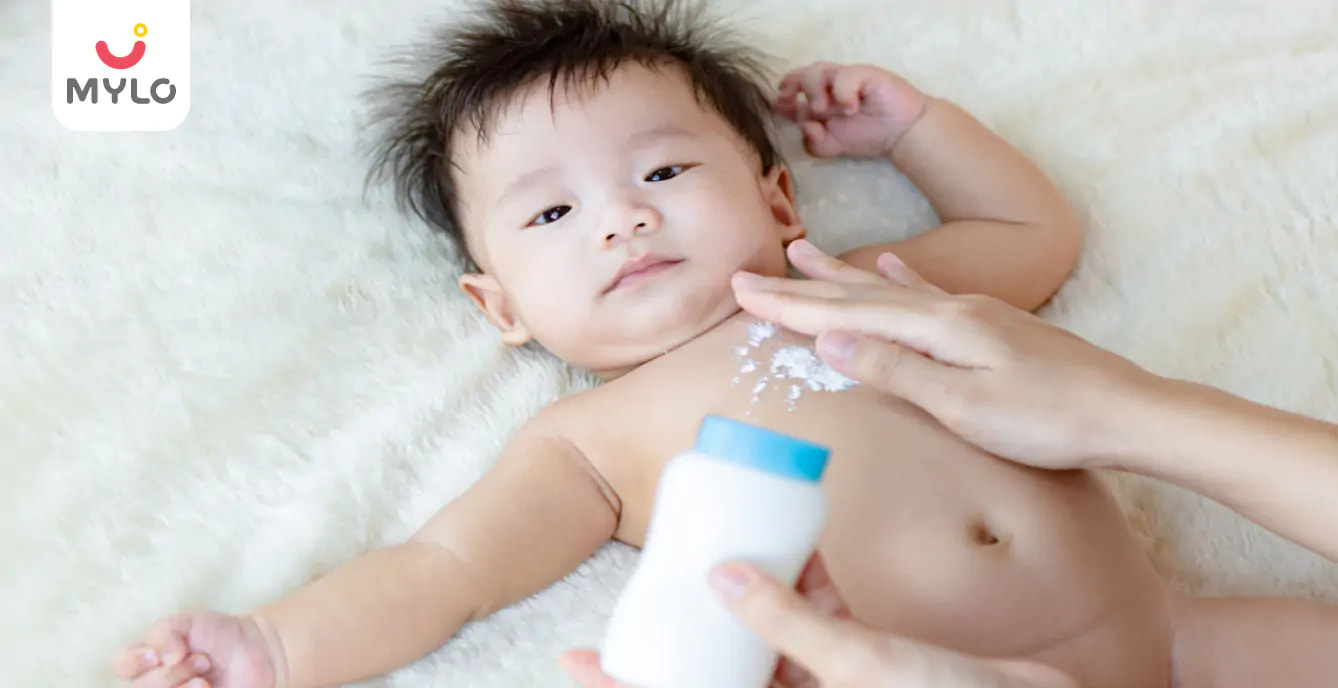
Is Talc Dangerous for Babies: A Parent's Guide to Risks & Alternatives
Updated on 19 October 2023
Babies are delicate, and parents strive to provide them with the utmost care and protection. One common practice that has been questioned in recent years is using talc on babies. Talcum powder, often marketed as baby powder, has been a trusted companion in many households for its perceived ability to keep a baby's skin dry and comfortable. However, concerns have arisen about the safety of talcum powder and its potential risks to infants.
In this guide, we will explore the question: is talc dangerous for babies and delve into the potential risks, compare talcum powder with baby powder, and offer alternative to talcum powder for babies.
Is Talcum Powder Dangerous for Babies?
Talcum powder is derived from talc, a mineral that is composed of magnesium, silicon, and oxygen. It has been traditionally used for various purposes, including keeping the skin dry and preventing rashes. However, recent studies and lawsuits have raised questions about its safety, particularly when used on babies.
What are the Risks of Using Talc on Babies?
There are five key risks associated with using talcum powder on infants:
1. Respiratory Issues
Talcum powder is a fine substance that can become airborne easily. When applied to a baby's skin, it can be inhaled, potentially leading to respiratory problems or even lung damage.
2. Irritation and Allergic Reactions
Some babies may develop skin irritation or allergic reactions in response to talcum powder. This can manifest as redness, itching, or rashes, which may be uncomfortable for the baby.
3. Infection Risk
Talcum powder can create a moist environment, making it an ideal breeding ground for bacteria and fungi. This can increase the risk of infections, especially in areas prone to moisture, like diapered areas.
4. Inhalation of Harmful Substances
In some cases, talcum powder may be contaminated with harmful substances like asbestos, a known carcinogen. Although cosmetic-grade talcum powder is supposed to be asbestos-free, contamination has been reported in the past, raising concerns about its safety.
5. Potential Link to Ovarian Cancer
Prolonged and repeated use of talcum powder in the genital area has been associated with an increased risk of ovarian cancer in adult women. While this does not directly impact babies, it adds to the overall concerns regarding talcum powder's safety.
You may also like: Types Of Diaper Rash: Causes & Treatment
Talcum Powder vs Baby Powder: Which is Better?
Baby powder is often used interchangeably with talcum powder. However, they are not the same. Baby powder is typically made from alternative ingredients like cornstarch or arrowroot powder, which are considered safer for babies. These alternatives absorb moisture without the potential risks associated with talcum powder.
Alternative to Talcum Powder for Babies
For parents who want to avoid the potential risks of talcum powder, there are safer alternatives:
1. Cornstarch Baby Powder
Cornstarch is a natural and safe alternative to talcum powder. It effectively absorbs moisture, keeping your baby's skin dry and comfortable.
2. Arrowroot Powder
Arrowroot powder, derived from a tropical plant, is another safe and natural alternative. It is gentle on the skin and provides moisture-absorbing properties.
3. Tapioca Starch
Tapioca starch is another excellent substitute for talcum powder. It is hypoallergenic and soft on a baby's sensitive skin.
4. Oatmeal Powder
Oatmeal powder, often referred to as colloidal oatmeal, is a natural and safe option for keeping a baby's skin dry and comfortable. It is particularly effective for soothing and relieving various skin irritations.
5. Coconut Oil
Pure coconut oil is an all-natural moisturizer that can help prevent skin dryness and discomfort in babies.
If you’re looking to buy a talc-free powder for your little one, you may consider Mylo’s Natural Baby Powder. Talc and asbestos-free, this baby powder is enriched with the goodness of oatmeal, arrowroot, cornstarch and lavender and tea tree essential oils to keep your baby’s skin supple and fresh.
Tips to Help You Choose Talc-Free Baby Powder
When selecting a talc-free baby powder, consider the following tips:
1. Read Labels
Check product labels to ensure they are talc-free and made from safe ingredients.
2. Choose Hypoallergenic
Opt for products labeled as hypoallergenic to reduce the risk of allergic reactions.
3. Fragrance-Free
Fragrances can sometimes irritate a baby's skin. Choose fragrance-free options.
4. Pediatrician-Recommended
Consult your pediatrician for recommendations on safe baby powders.
5. Patch Test
Always perform a patch test when introducing a new product to your baby's skin to check for any adverse reactions.
You may also like: The Ultimate Guide to Baby Skin Care Products
The Bottom Line
As a parent, your baby's well-being is paramount. While talcum powder has been a household staple for generations, it's essential to be aware is talc dangerous for babies and the potential risks it may pose to your baby's health. Safer alternatives like cornstarch, arrowroot powder and oatmeal powder are readily available and provide a gentle way to keep your baby's skin dry and comfortable. Ultimately, it's about ensuring that your baby receives the best care, free from unnecessary risks.
References
1. Howard C. Mofenson, Joseph Greensher, Anthony DiTomasso, Sharon Okun. (1981). Baby Powder—A Hazard!. Pediatrics
2. O’Brien KM, Tworoger SS, Harris HR, et al. (2020). Association of Powder Use in the Genital Area With Risk of Ovarian Cancer. JAMA



Written by
Priyanka Verma
Priyanka is an experienced editor & content writer with great attention to detail. Mother to an 11-year-old, she's a ski
Read MoreGet baby's diet chart, and growth tips

Related Articles
Related Questions
Hello frnds..still no pain...doctor said head fix nhi hua hai..bt vagina me pain hai aur back pain bhi... anyone having same issues??

Kon kon c chije aisi hai jo pregnancy mei gas acidity jalan karti hain... Koi btayega plz bcz mujhe aksar khane ke baad hi samagh aata hai ki is chij se gas acidity jalan ho gyi hai. Please share your knowledge

I am 13 week pregnancy. Anyone having Storione-xt tablet. It better to have morning or night ???

Hlo to be moms....i hv a query...in my 9.5 wk i feel body joint pain like in ankle, knee, wrist, shoulder, toes....pain intensity is high...i cnt sleep....what should i do pls help....cn i cosult my doc.

Influenza and boostrix injection kisiko laga hai kya 8 month pregnancy me and q lagta hai ye plz reply me

RECENTLY PUBLISHED ARTICLES
our most recent articles
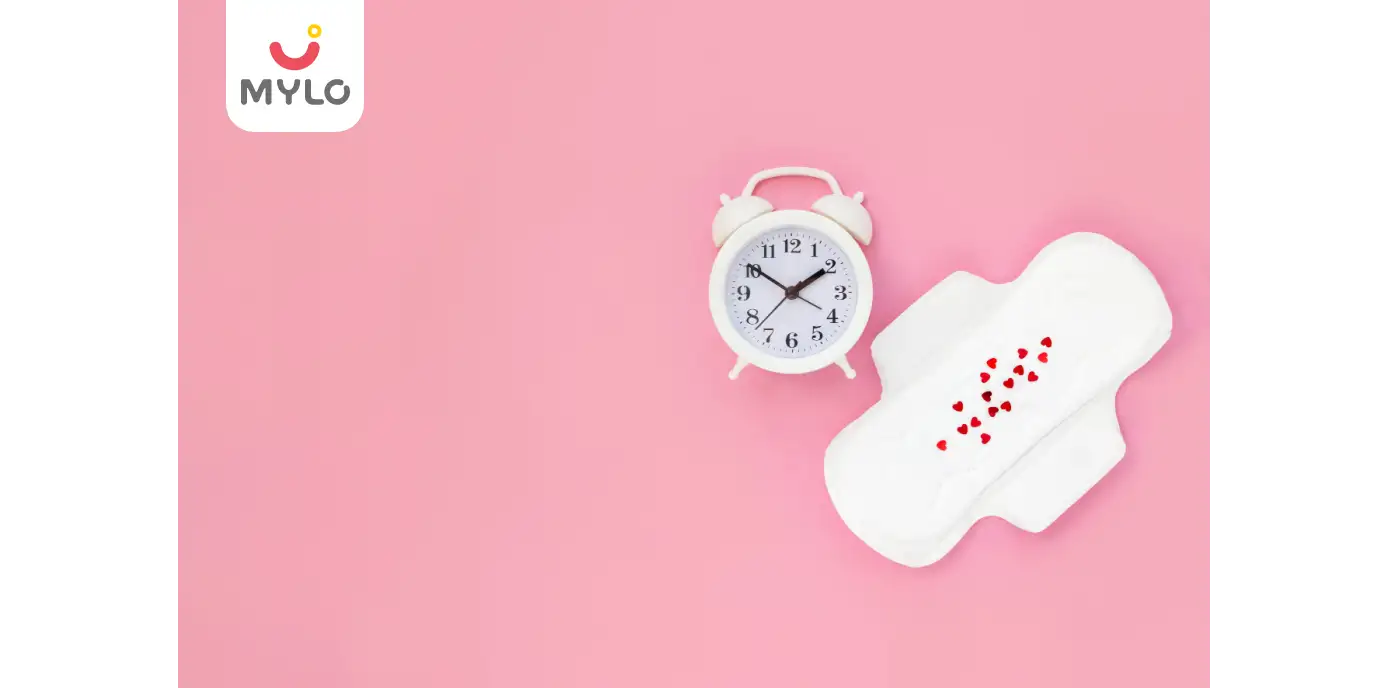
Vaginal Bleeding
Postmenopausal Bleeding: Symptoms, Causes & Treatment
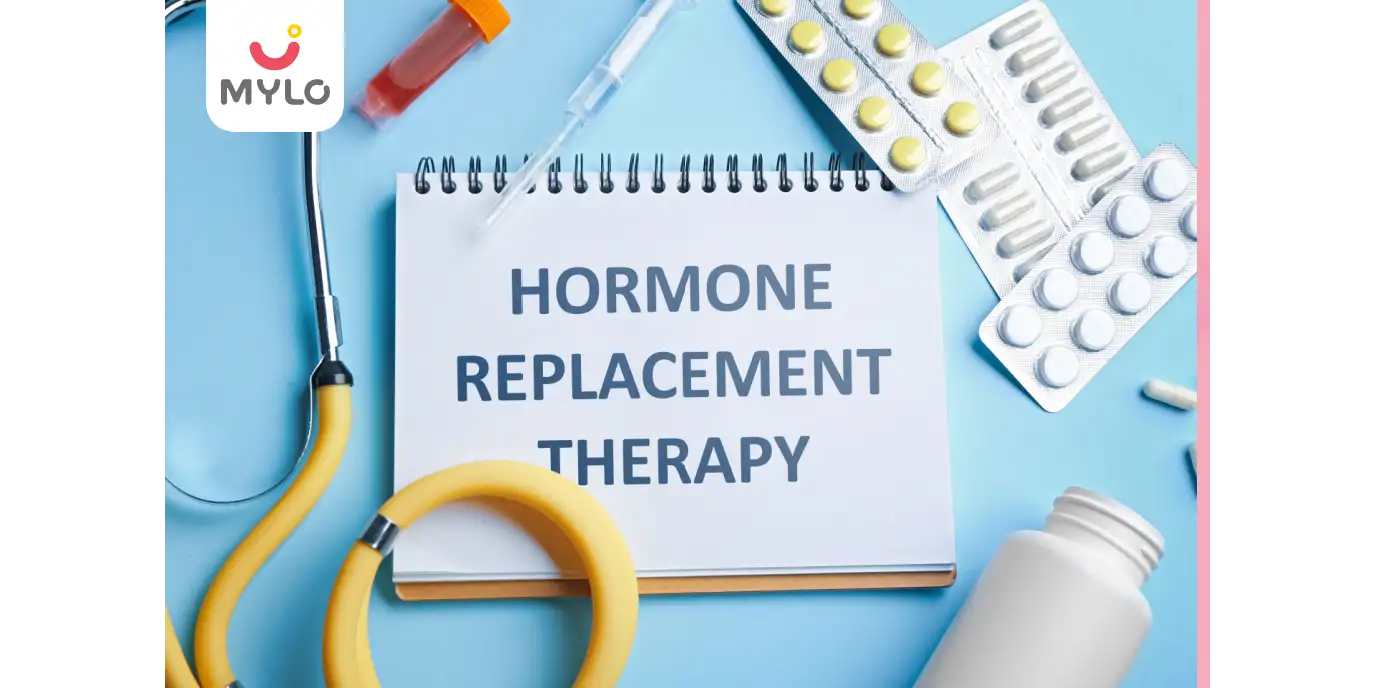
Hormones
Hormone Replacement Therapy (HRT) : Type, Side Effects & Treatment
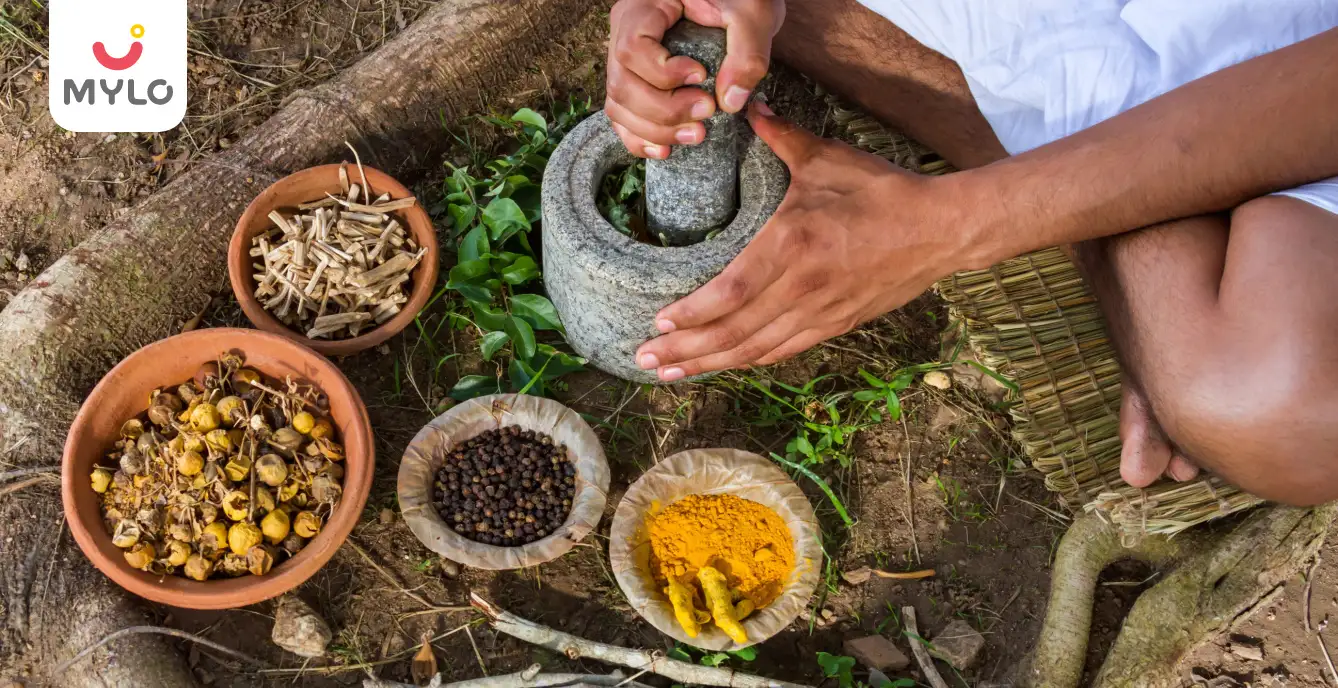
Ayurveda & Homeopathy
Arogyavardhini Vati: How This Herbal Blend Can Help You Balance Your Three Doshas
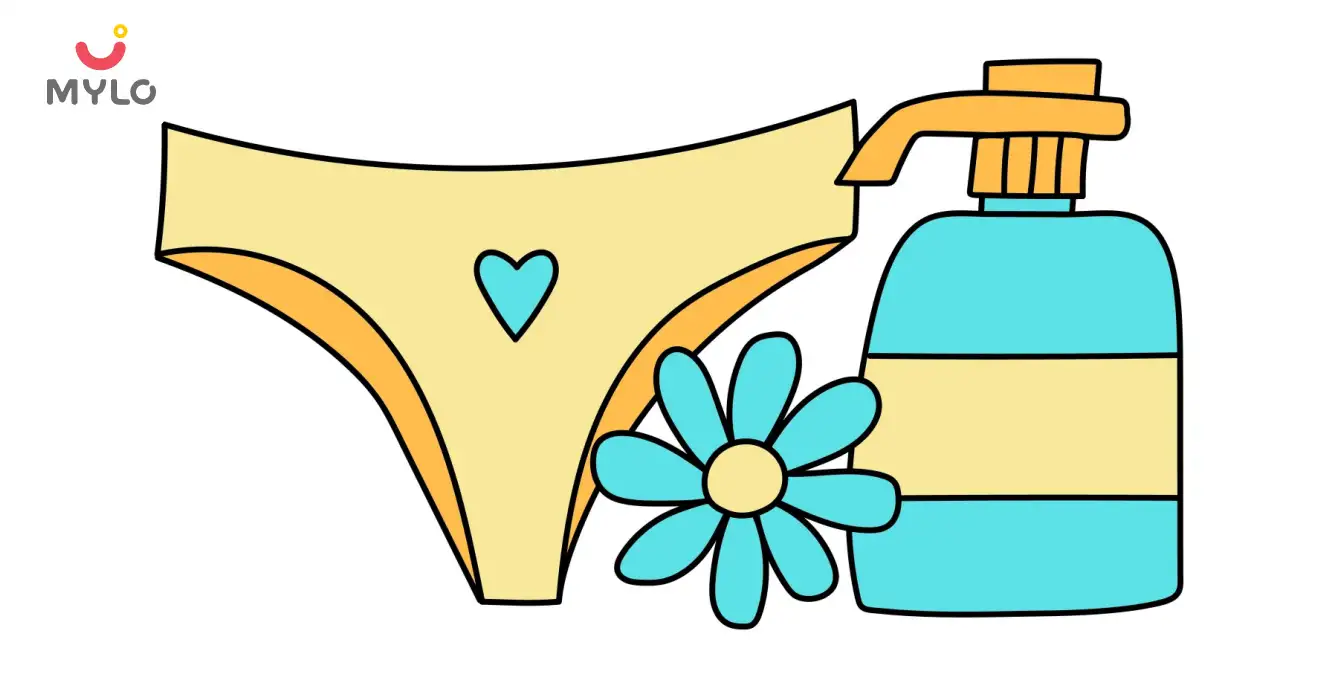
Hygiene & Sanitation
How to Clean Your Vagina & Vulva Complete Guide
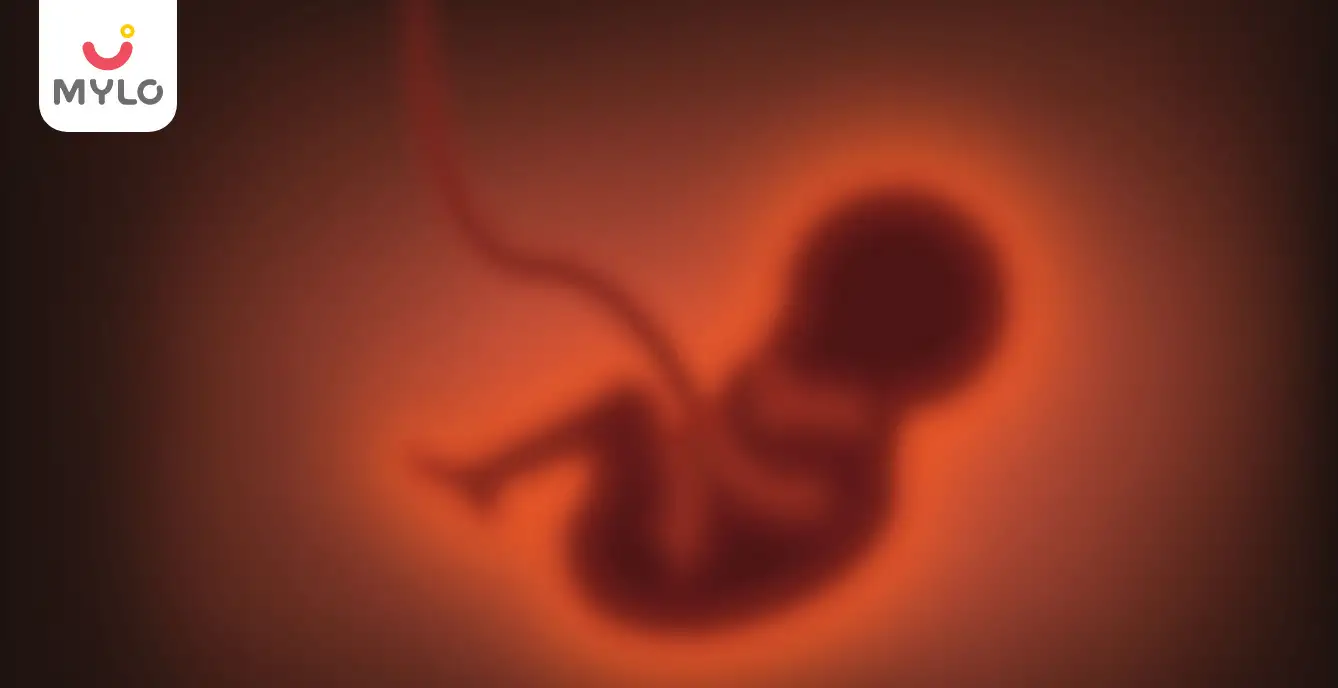
Miscarriage
Blighted Ovum: Causes, Symptoms & Treatment
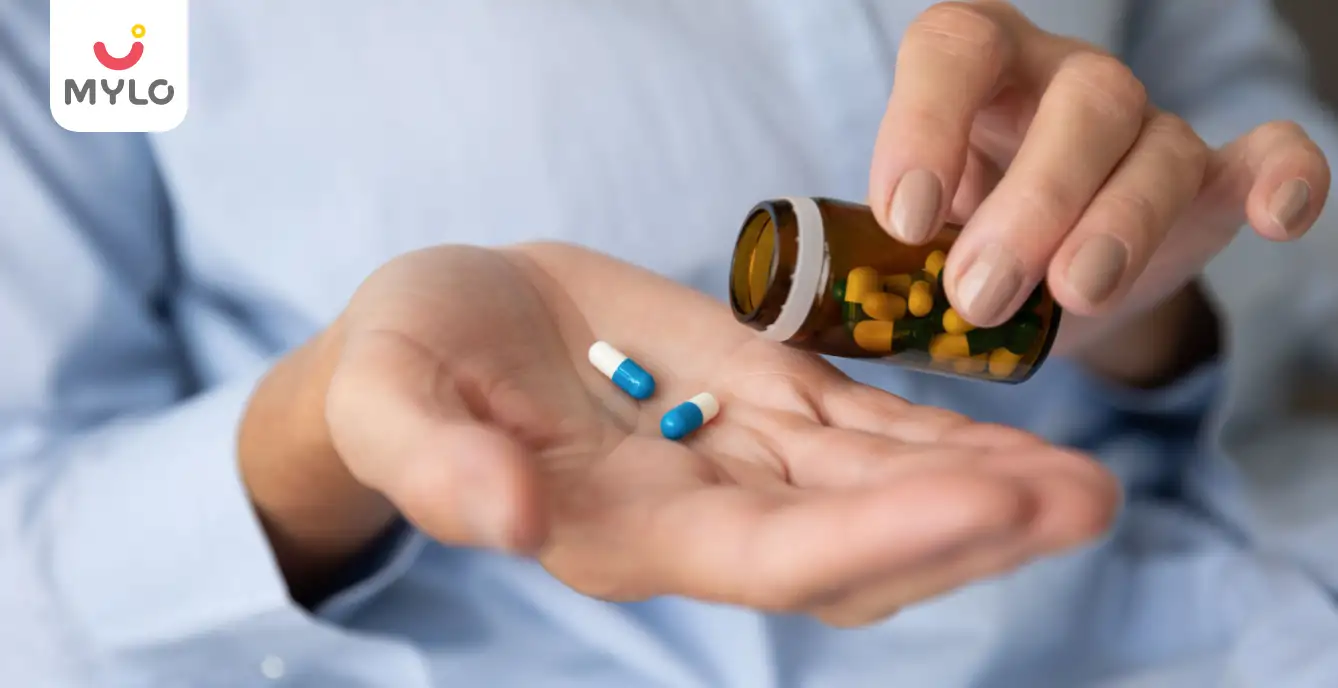
Folic Acid
The Ultimate Guide to Consuming Iron and Folic Acid Tablets
- White Creamy Discharge: Is It Normal or a Cause for Concern?
- First-Time Sex & Pregnancy Chances: What You Need to Know
- The Ultimate Guide to Twin Pregnancy Symptoms at 4 Weeks
- A Comprehensive Guide to Understanding the Effects of Masturbation
- Placenta Position: How It Affects Your Pregnancy and Delivery
- Clitoral Hood: Benefits, Risks & More
- Pelvic Exam: Details, Outcomes & Dos & Don'ts
- My life mantar is - HARE KRISHNA HARE KRISHNA KRISHNA KRISHNA HARE HARE HARE RANA HARE RAMA RAMA RAMA HARE HARE which means no matter what is going in your lifejust keep this mwntra in your mind every minute every sec everything will be good automatically. U will not need any other mantra
- Early Pregnancy & Egg White Discharge: What You Need to Know
- Dilation and Curettage (D&C): Procedure, Risks & Benefits
- Alivher Tablet Uses: How to Maximize the Benefits for Your Reproductive Health
- Incompetent cervix: Causes, Symptoms, & Treatment
- Soda During Pregnancy: Is It Safe or Should You Avoid It?
- Watery Discharge Before Period: Is It Normal or a Cause for Concern


AWARDS AND RECOGNITION

Mylo wins Forbes D2C Disruptor award

Mylo wins The Economic Times Promising Brands 2022
AS SEEN IN

- Mylo Care: Effective and science-backed personal care and wellness solutions for a joyful you.
- Mylo Baby: Science-backed, gentle and effective personal care & hygiene range for your little one.
- Mylo Community: Trusted and empathetic community of 10mn+ parents and experts.
Product Categories
Baby Carrier | Baby Soap | Baby Wipes | Stretch Marks Cream | Baby Cream | Baby Shampoo | Baby Massage Oil | Baby Hair Oil | Stretch Marks Oil | Baby Body Wash | Baby Powder | Baby Lotion | Diaper Rash Cream | Newborn Diapers | Teether | Baby Kajal | Baby Diapers Pants | Cloth Diapers | Laundry Detergent | Lactation Granules |




